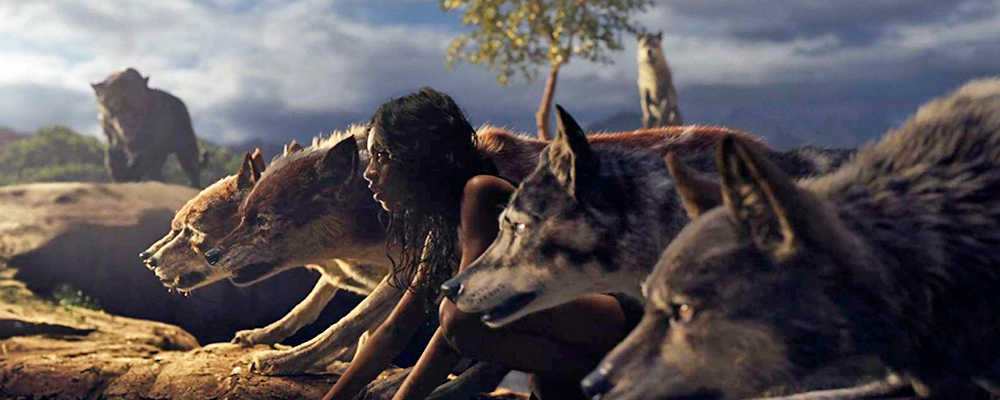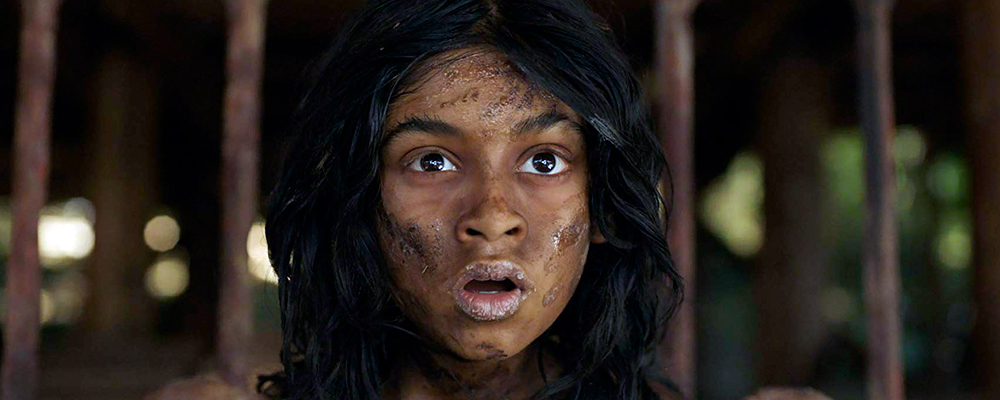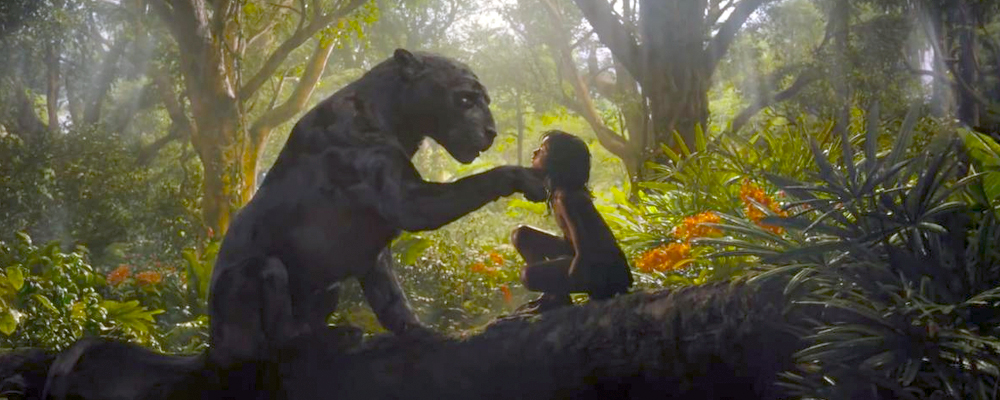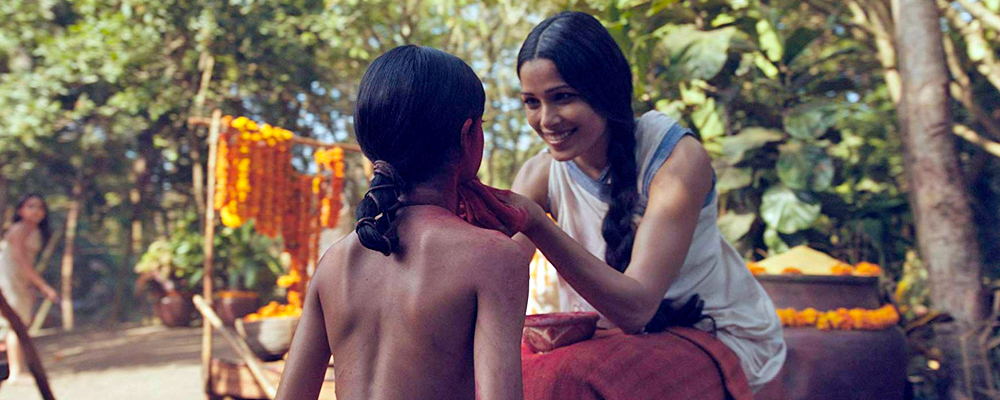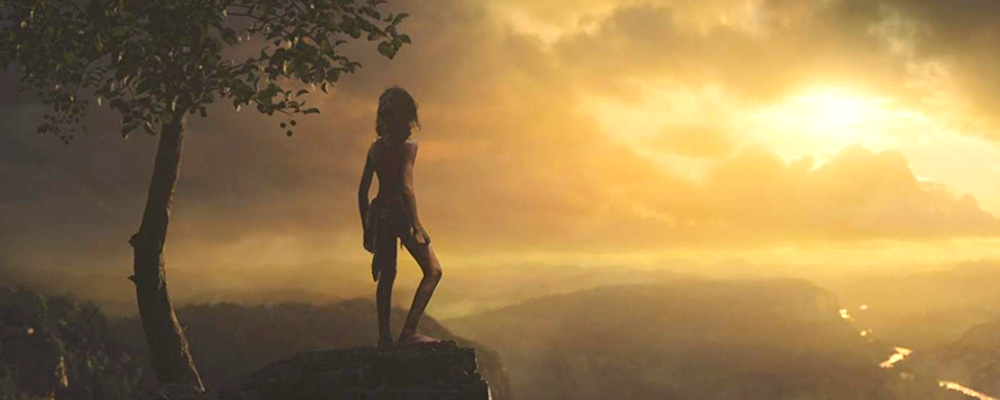‘Mowgli: Legend of the Jungle’ Is a Classic Story Revised for Darker Times
Michael Amundsen
The Andy Serkis directed adaptation of Rudyard Kipling’s time-honored tale of a young boy raised by wolves takes a darker turn in “Mowgli: Legend of the Jungle.” In its visually captivating portrayal of the natural order of the wild, “Mowgli” shoots for something more thematically profound and darker than either of the Disney versions.
The 1967 “Jungle Book” jumped with its energetic fairy tale. It was a fun effort in the Post Disney world of animated features, being most memorable for it’s catchy music and precise character animation voiced by perfectly cast actors. Disney’s life action remake is less memorable for its flat characters than it is for its near perfect CGI.
Serkis goes for a look that suggests stop motion animation. It does not aspire to the photorealism that one saw in the 2016 Disney remake. The visuals may be less pretty but they serve the fairy tale aspect story better. Serkis develops three-dimensional characters. Life in the jungle can be hard and dangerous. The panther Bagheera and the cockney bear Baloo wear the baggage of their survival in the scars on their face. When they speak, they speak from the soul, their faces giving shape to emotions deep in their psyche. In this movie, with character, location and story, it’s all about the soul.
The same can be said of any of the other animal personas that populate “Mowgli.” The burden of leadership distorts the aging face of the wolf Akela. One look at Shere Kahn and one can read the pain, anger and living nightmare that drive the murderous tiger.
Most indicative of the different approaches of this film compared to Disney’s is the comedic sidekick Bhoot (Louis Ashbourne Serkis). In any Disney film, Bhoot, the young albino wolf rejected by his peers, would have stuck around for the entirety of the movie, providing much needed comedy relief. But Serkis has different ideas. And they may be disturbing to younger viewers.
The excellence of all the voice actors adds to the humanity of the jungle animals. Knowing Benedict Cumberbatch as the coincidentally named Star Trek villain Khan will not prepare one for the level of ruthless evil he portrays here. Christian Bale as Bagheera and Andy Serkis as Baloo show the heavy weight of their responsibility as advisor to the wolf pack. But it is Cate Blanchett as the snake Kaa that best typifies the mysterious amorality of the omnipresent jungle itself.
Rohan Chand as Mowgli takes on the considerable task of being human with the creatures of the forest, and being an animal with the humans. It’s a technically challenging performance and one that he handles convincingly.
With screenplay by Callie Kloves, Serkis keeps the jungle and the talking animals closer to the realm of fantasy. It changes when halfway through Mowgli adopts into the human village. The scenes there are with real life actors and the mise en scene resorts to a more traditional narrative look. Rejected at first, Mowgli soon begins to fit in thanks to the conflicted father figure in the white hunter and the more caring village woman Messua. The introduction of music and color sets the world of the villagers apart from the harsh realities of the wild.
Mowgli is provided with a trio of caring mother figures, from Messua (Freida Pinto) in the village to his adoptive mother Nisha (Naomie Harris) in the wolf pack. Kaa provides a different type of mother figure, but none the less influential. Nisha speaks for the pack, Messua speaks for the village, and Kaa speaks for the jungle, which, as she says, “was here before you and will be here after you are gone.”
Perhaps “Mowgli: Legend of the Jungle” is a more appropriate vision of the natural world today. When Kipling wrote the “Jungle Book” stories, he was a product of British colonization. He wrote with the view of a colonizer when most of the world was still mysterious and largely unknown. But now, as most natural environments and the animals are under threat, perhaps this darker version of Kipling’s tales is the most honest telling.
“Mowgli: Legend of the Jungle” releases Dec. 7 on Netflix.

